Jess Brammar, BBC Newsnightpublished at 12:24 BST 3 April 2015
@jessbrammar
Quote MessageDave & Ed this morn: that awkward moment when you're wearing exactly same as bloke you are trying to be different to
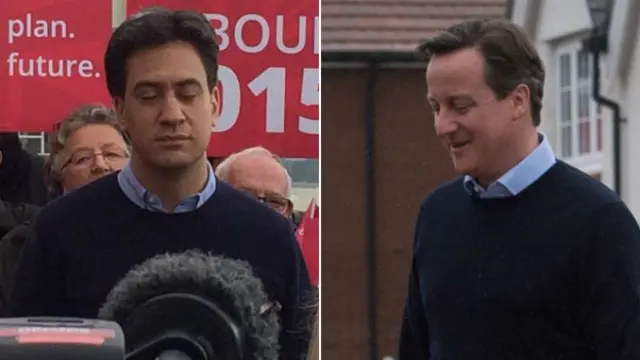 Image source, PA
Image source, PATories and Labour face pressure over claims they could be forced into deal with UKIP or the SNP
SNP's Nicola Sturgeon denies report she privately said she would "prefer" David Cameron as PM
UKIP's Nigel Farage defends comments about migrants using the NHS for HIV treatment
Further reaction to Thursday's live TV debate, which ITV says was watched by seven million viewers
There are 34 days until the general election
Andy McFarlane and Brian Wheeler
@jessbrammar
Quote MessageDave & Ed this morn: that awkward moment when you're wearing exactly same as bloke you are trying to be different to
 Image source, PA
Image source, PA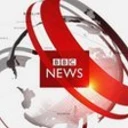 BBC News Channel
BBC News Channel
UKIP's deputy leader Paul Nuttall has been defending his boss's comments during last night's debate about foreigners receiving treatment on the NHS for HIV.
Mr Nuttall said he believes migrants should be tested for the virus before they're allowed into the UK.
"Australia and Canada have a system, whereby you can't enter the country if you have HIV or AIDs. I think it makes no sense whatsoever to bring people into the country who have dangerous diseases."
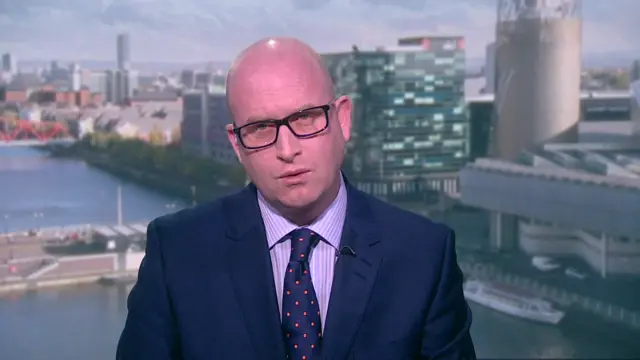
More on a possible Conservative-UKIP post-election deal. Shadow Health Secretary Andy Burnham wants to get to the bottom of the matter. He's written to David Cameron calling on him to "come clean" on his position.
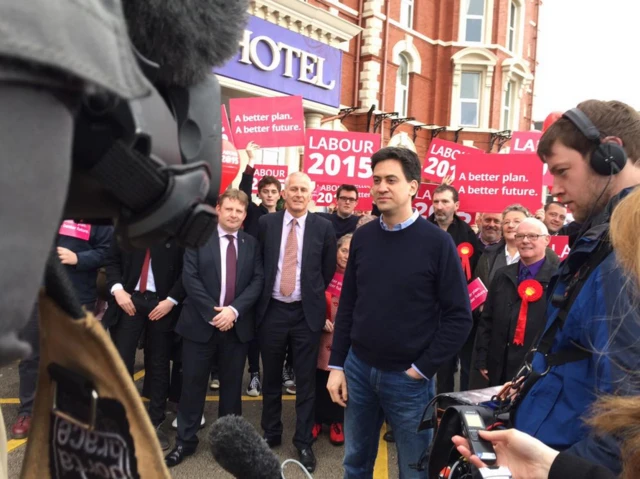
Ed Miliband, who's just been spotted out campaigning in Lancashire, is asked who won the debate, but replies: "I leave the commentary to others."
He says he set out a clear choice between Labour and the Tories.
There's been plenty of speculation about possible coalitions and arrangements in the event of a hung parliament. Nigel Farage has said he would do a post-election deal with the Conservatives, external - but would David Cameron agree to that?
Asked by Sky News whether he would take the opportunity to rule out any kind of coalition confidence and supply arrangement with UKIP, he said: “We are going to win outright, that’s our aim in this election.
"That’s what I’m going to spend my next 34 days fighting for. My impression of the debate was very much that there’s one person, one leader, one party, that is offering the competence of a long-term plan that’s working and then there’s a coalition of chaos out there, that wants more debts, spending and taxes, that’s what came across so clearly.”
Jonathan Holmes, RadioTimes.com
Television viewers wanted a "spectacle", but British politics has never wanted for spectacle. Parliament is opened every year by the Queen - wearing an actual crown - and every week our politicians make spectacles of themselves at PMQs. Instead what viewers got was a debate.
This is a timeslot that usually features soap operas, and the seven-way fight had potential to rival anything on EastEnders or Corrie. There were familiar characters and new faces (for those outside Scotland and Wales), bitter enemies and coalition break-ups and Nigel Farage.
But if anything it was too polite. Usually seven people on an ITV stage means someone is about to throw a chair at Jeremy Kyle. Yet the careful moderation of ITV News's Julie Etchingham meant everything went according to plan. In two hours only four questions were asked, with the first seven minutes of every section allocated to the leaders' uninterrupted responses. For those wanting a brawl, it was a bit dull and overlong. It may have benefitted from more breaks, to let the viewers (and contestants) catch their breath.
In the Spin Room at Salford, where journalists and politicians watched the debate, the biggest laughs went to some pained expressions and Farage being Farage. That's why when a member of the audience started heckling, Twitter lit up, and many journos ran out of the room like Superman looking for a phone booth. At last, some shouting. This was more like it.
Nicola Sturgeon, who's campaigning in Edinburgh, has been talking about what might happen after May 7.
"A matter of simple arithmetic says if the SNP and Labour combined have more seats than the Tories we lock the Tories out of government," she told Sky News.
"If the SNP's a big force in Westminster we can make sure that a Labour government doesn't sell out on its values in the way that the last Labour government did. We can make sure that we keep them honest and make sure they deliver real change for people."
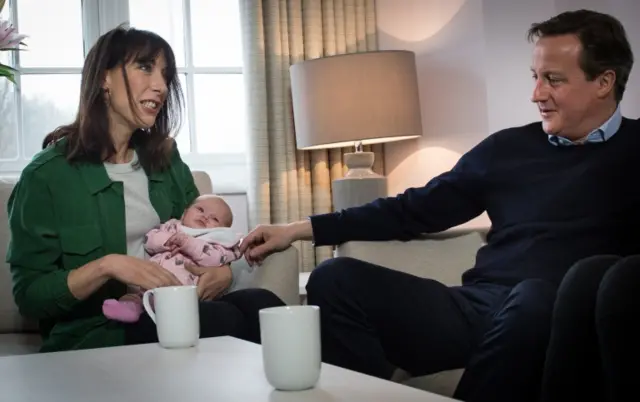 Image source, PA
Image source, PADavid Cameron has told reporters he's "delighted" with how the seven-way showdown went, despite polls suggesting no-one emerged a clear winner.
Asked if he had been the "invisible man", the Conservative leader replied: "I was delighted with the debate. I am glad the poll of polls has got me coming out on top, but to me the real abiding impression was that I have a long-term plan that is working."
Happy Birthday to Nigel Farage who is 51 today. He's yet to tweet this morning - so we don't know if he feels he deserves a birthday pint after last night's performance - but his own party is among those who have wished him many happy returns via Twitter., external
Awwww.
 Iain Watson
Iain Watson
Political correspondent
Americans often say elections are decided by the "big mo" - the party or candidate that has momentum.
After last night's debate Ed Miliband appears to have "little mo" and his strategists are content if not ecstatic with that. That's because they say so much of the Conservative campaign focuses on the issue of leadership.
On day one David Cameron denounced his Labour opponent on the steps of Downing Street. So, to tie with the current PM in two polls on the question of who won the debates - and to be ahead in another - is seen as progress.
Specifically on the question of who'd make the better prime minister, Ed Miliband still trails - but Labour argue the gap is narrower now than it was before the campaign got under way.
Privately they would concede that the seven-way format worked to an extent for David Cameron - and publicly they say the prime minister "hid behind" the leaders of the smaller parties to blunt Ed Miliband's blows.
They also recognise that Labour hasn't been on the front foot enough in the first full week of the campaign. Now with their leader pretty much unscathed after the only debate with David Cameron at this election, they say they have "policies in the locker" which will be released next week in an attempt to set rather than react to the agenda.
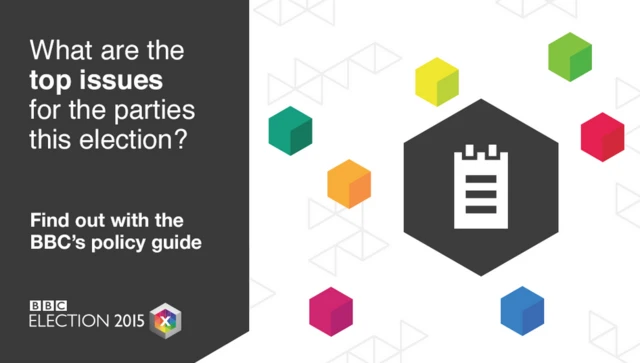
If you couldn't quite work out what each of the seven party leaders stood for over the din of the debate, we've got a handy policy guide for you to peruse at your leisure.
Quote MessageRatings figs now in: #leadersdebate peak audience of 7.4 m (a 33% share); highest Thurs ITV audience since Eng v Uruguay"
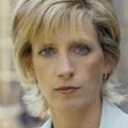 Carole Walker
Carole Walker
Political correspondent
Quote MessageDavid Cameron tells us he had steak and a glass of wine after last nights debate"
Katy Searle, editor of BBC Political News
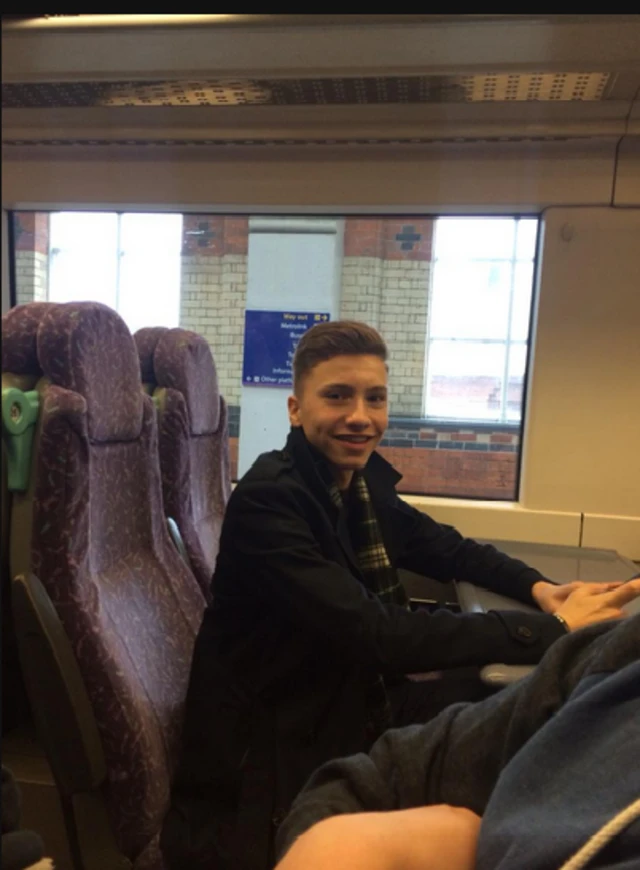
tweets:, external Look who we sat next to on the train back! Johnny #itvleaderdebate, external#GE2015, external
There were some sharp exchanges between the leaders last night - but David Cameron also came under attack from a heckler in the audience who wanted to highlight the plight of former members of the armed services.
In the Press Association's poll of polls, the Conservative party has maintained a slim lead over Labour.
With 34 days to go until the election, the Tories are on 34.4%, 0.4 points ahead of Labour on 34.0%.
Ukip are in third place on 13.3%, the Liberal Democrats are fourth on 7.8% and the Greens are fifth on 5.4%.
However, it is too soon to judge whether the leaders' debate has had any impact upon levels of support, PA says.
Don't forget you can follow all the ups and downs on the BBC's poll tracker.
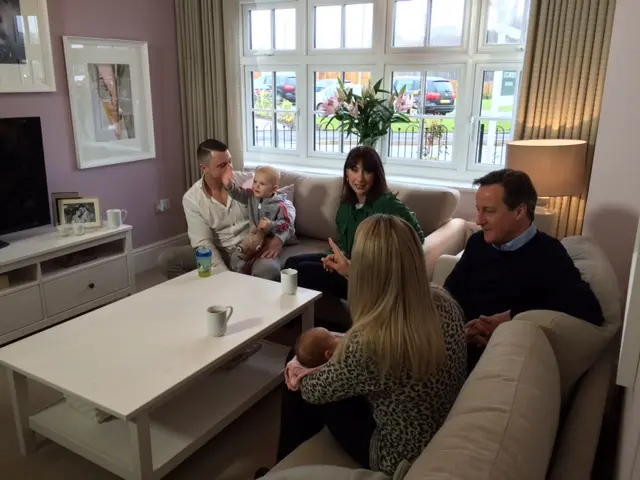
We promised you more pictures of politicians in the rain - but it looks like David Cameron has managed to elude us, for now at least.
Here he is having a cuppa with a family in Chorley where he's speaking about the Tories' starter homes policy a little later.
We've just found out there is such a thing as an election sketch artist.
Here's Adam Dant at the Clegg poster unveiling in Hyde, Manchester. He sketches many such events - and also sketched last night's debate.
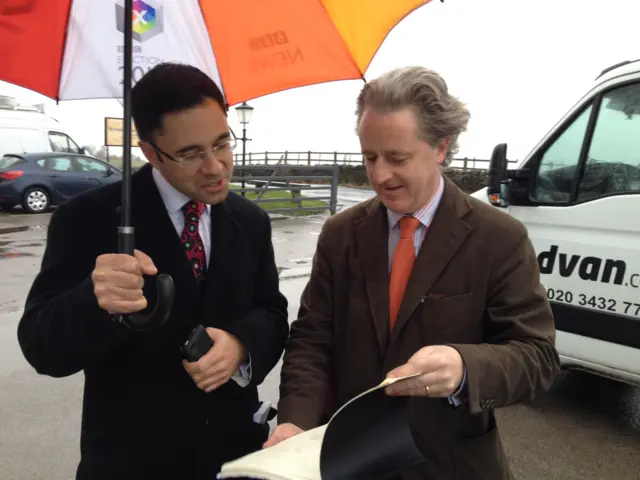
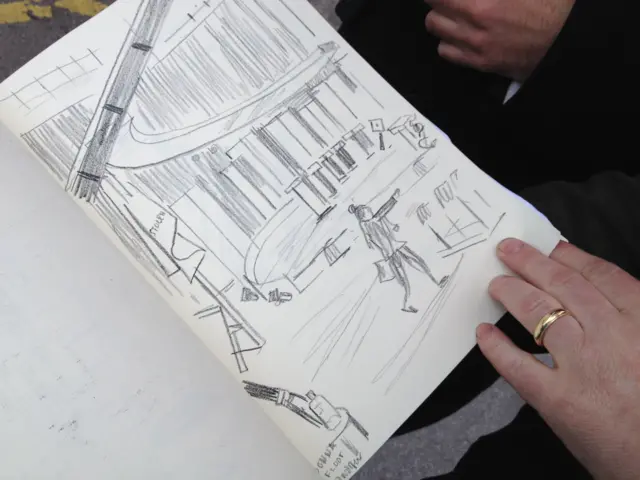
ITV says seven million viewers watched, external the leaders’ debate, with an audience peak of 7.4 million.
This is down from the UK's first prime ministerial debate in 2010 - between the then PM Gordon Brown, David Cameron and Nick Clegg - which an average of 9.4 million viewers tuned in for.
 BBC News Channel
BBC News Channel
The Daily Mirror's associate editor Kevin Maguire and economist Tim Harford agree we're in no-man's land when it comes to the political landscape.
The three-party system is gone and we're in a completely new era, says Mr Maguire, adding voter opinion is fractured across Britain.
Mr Harford says we'll have to wait to see whether people start thinking in a strategic way about their vote. He says it all adds up to an election outcome that is very hard to predict.